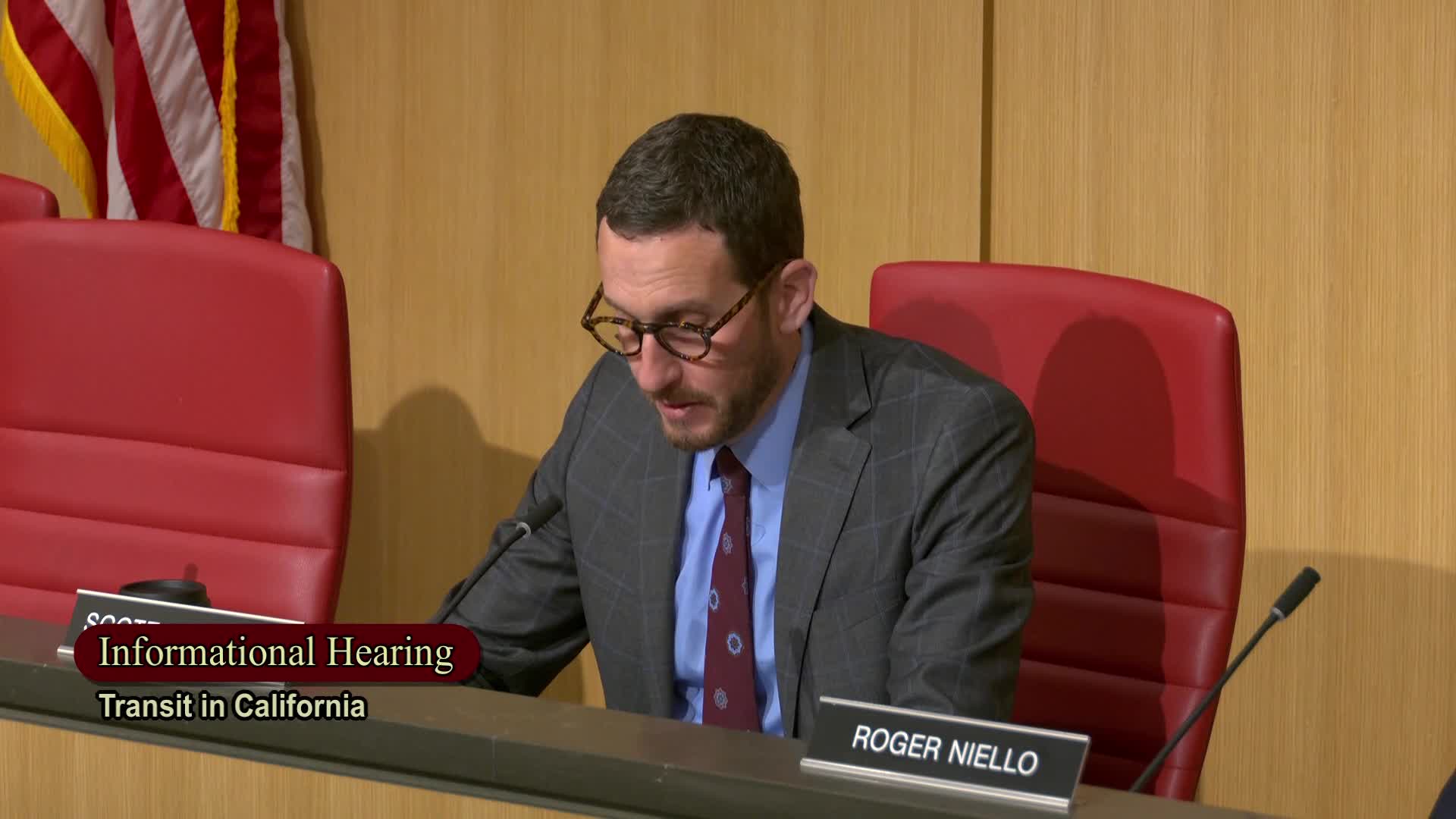CalSTA task force, SB125 rules set reporting deadlines and accountability for transit relief

Summary
CalSTA's Transit Transformation Task Force and SB125 accountability requirements were detailed to the Senate subcommittee: short‑term regional plans are required to access funding, and long‑term plans are due to CalSTA by June 30, 2026. The task force is scheduled to deliver policy recommendations to the Legislature by Oct. 31, 2025.
Mark Tolleson, undersecretary at the California State Transportation Agency (CalSTA), told the Senate subcommittee that SB125 includes built‑in accountability and planning obligations intended to help regions transition from one‑time relief to longer‑term financial sustainability.
CalSTA's role and the Task Force: Tolleson said CalSTA is administering the SB125 allocations and is convening the 25‑member Transit Transformation Task Force, which includes state agencies, local transit operators, academics, advocacy groups and labor. The Task Force has met multiple times and is developing a menu of policy recommendations for the Legislature and administration; CalSTA expects to release interim volumes during the summer and a final report by Oct. 31, 2025.
Reporting and compliance requirements: regions and operators seeking SB125 disbursements must submit short‑term regional plans documenting how relief funds will be used and how operating shortfalls will be addressed. Tolleson said 45 of 49 agencies had requested initial allocations and that 40 of those allocations had been approved; the remaining agencies are small operators representing a tiny share of statewide dollars. CalSTA said it planned to allocate the roughly $1.0 billion available for FY 2024–25 no later than April 30 of that fiscal year (as stated in CalSTA materials provided to the committee).
Long‑term plans and statutory relief: SB125 also requires long‑term plans from agencies describing strategies for sustaining transit without additional state funds; those plans are due June 30, 2026. Tolleson described other statutory provisions in SB125: temporary suspension of certain financial penalties, hold‑harmless provisions using pre‑pandemic data for revenue allocations, and limited flexibility allowing some State of Good Repair funds to support operations.
What the task force will examine: Tolleson and members said the group is examining system‑level reforms that could include changes to allocation formulas (for example, whether farebox metrics remain the right basis), permitting and delivery reforms to reduce capital costs and ways to accelerate transit priority projects. Tolleson said these topics will be further examined in near‑term task force meetings and technical working groups and could inform legislative proposals in 2026.

